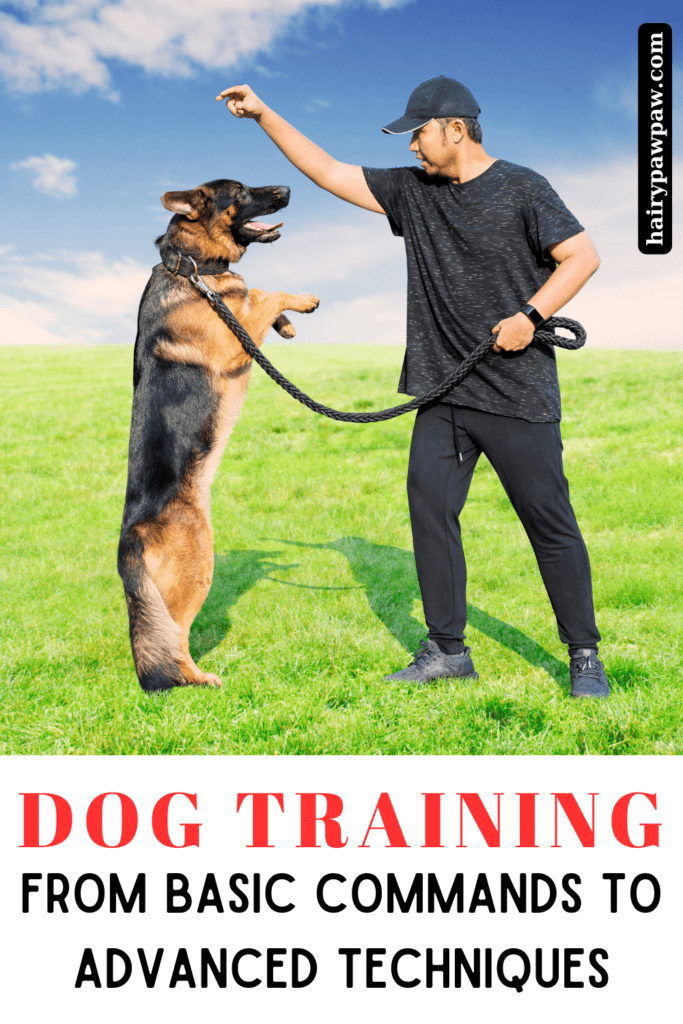This “How to Train and Socialize Your Rottweiler for Success” post may contain affiliate links, which means I’ll receive a commission if you purchase through my link, at NO EXTRA COST TO YOU
How to Train and Socialize Your Rottweiler for Success
Rottweilers are loyal, strong, and intelligent dogs, making them one of the most beloved breeds for families and individuals alike. However, like any breed, Rottweilers require proper training and socialization to become well-adjusted, obedient companions. Training and socializing your Rottweiler from a young age ensures they grow into a balanced and confident adult dog. By following a structured approach, you’ll create a positive environment for both you and your Rottweiler. In this guide, we’ll explore effective methods for training and socializing your Rottweiler to set them up for success.

1. Understanding the Rottweiler’s Temperament
Before diving into training and socialization, it’s crucial to understand your Rottweiler’s natural temperament. Rottweilers are confident, protective, and often independent. Their intelligence and natural guarding instincts make them excellent working dogs, but these traits can also lead to stubbornness or dominance if not properly channeled through training. Rottweilers are highly trainable, but they thrive with consistent, firm, and positive guidance. With the right approach, you can harness their potential and turn them into well-mannered companions.
2. Start Training Early: The Importance of Puppyhood
The first few months of your Rottweiler’s life are critical. Early socialization and basic training during this period will significantly shape their behavior as adults. Puppies are more adaptable to new experiences, so it’s essential to expose them to various environments, sounds, people, and other animals. Early training helps prevent behavioral problems such as fear, aggression, or territorial issues.

10 Essential Puppy Training Tips
Setting the stage for a well-behaved dog starts with early training. In this comprehensive guide, we share 10 essential tips to help new puppy owners train their pups effectively. Learn the importance of starting early, using positive reinforcement, and being consistent, along with practical advice on socialization, crate training, and teaching basic commands.
Key Areas to Focus on in Puppyhood:
- Basic Commands: Begin teaching essential commands such as “sit,” “stay,” “come,” and “down.” These simple commands lay the foundation for more advanced training.
- Socialization: Expose your Rottweiler puppy to different people, dogs, and environments. This helps them become comfortable in various situations, preventing fear or aggression later on.
- Crate Training: Crate training establishes a safe and comfortable space for your Rottweiler, encouraging housebreaking and reducing anxiety.
3. Positive Reinforcement: The Key to Successful Training
When it comes to training a Rottweiler, positive reinforcement is by far the most effective method. This training style focuses on rewarding good behavior rather than punishing undesirable actions. Use treats, praise, and play as rewards for successfully following commands or exhibiting good behavior. Positive reinforcement helps create a strong bond between you and your Rottweiler, making them eager to please.
Steps for Effective Positive Reinforcement:
- Be Consistent: Consistency is crucial. Always reward your Rottweiler for performing a desired behavior, whether it’s following a command or staying calm in a new environment.
- Keep Sessions Short and Engaging: Rottweilers are highly intelligent, but they can lose focus if training sessions are too long. Keep training sessions around 10-15 minutes and incorporate breaks and playtime.
- Use High-Value Rewards: Especially in the early stages, use high-value treats that your Rottweiler loves. This helps grab their attention and motivates them to follow your commands.

How to Train Your Dog Without Punishment or Fear
Training your dog without punishment creates a happier and more confident pet. Positive reinforcement builds trust, shapes behavior, and avoids the fear often caused by punishment. Dogs learn best through encouragement, making training enjoyable for both of you. In this guide, we’ll explore gentle techniques that focus on kindness and consistency.
4. Socializing Your Rottweiler: Why It’s Essential
Rottweilers are naturally protective of their family and territory. While this instinct is an asset in some situations, without proper socialization, it can lead to fear-based aggression or overprotectiveness. Socializing your Rottweiler early and often exposes them to a variety of situations, reducing anxiety and ensuring they respond calmly in different environments. A well-socialized Rottweiler will be more confident, well-behaved, and comfortable in social settings.
Socialization Steps for Success:
- Meet New People and Animals: Introduce your Rottweiler to a variety of people, including children, men, women, and seniors. Also, expose them to other dogs, both large and small, in controlled settings.
- Visit Different Environments: Take your Rottweiler to different environments such as parks, busy streets, and pet-friendly stores. These outings expose them to new sights, sounds, and experiences, helping them adapt to different situations.
- Puppy Classes and Playdates: Enroll your Rottweiler in puppy classes or arrange playdates with other well-socialized dogs. These experiences help teach your dog proper dog-to-dog interactions and improve their social skills.
5. Building Trust and Bonding with Your Rottweiler
Building a trusting relationship with your Rottweiler is key to successful training and socialization. Rottweilers are naturally loyal, and establishing trust with you as their leader encourages them to follow commands and engage positively in social situations. Spend quality time with your Rottweiler through training, play, and bonding activities. The more time you invest in your relationship, the more likely your Rottweiler will listen to and respect you.
Ways to Build Trust:
- Consistency in Commands: Rottweilers respond best to consistent rules and commands. Ensure that everyone in the household uses the same commands to avoid confusion.
- Provide Clear Boundaries: Set clear boundaries and routines. Dogs thrive in environments where they know what to expect and what’s expected of them.
- Positive Interactions: Spend time playing with your Rottweiler using their favorite toys or engaging in activities like fetch. Positive interactions strengthen your bond.
6. Correcting Behavioral Issues Early
Rottweilers are powerful dogs with strong personalities. If not corrected early, undesirable behaviors such as jumping, excessive barking, or chewing can become problematic. The key is to address these issues as soon as they arise, using positive reinforcement and patience.
Common Behavioral Issues and How to Correct Them:
- Excessive Barking: Teach your Rottweiler the “quiet” command. Reward them when they stop barking on command.
- Jumping: Encourage calm behavior by rewarding your Rottweiler when they greet people with all four paws on the ground.
- Chewing: Provide plenty of chew toys and redirect your Rottweiler to those items if they start chewing on furniture or other inappropriate objects.
7. Consistency and Patience: The Cornerstones of Success
Rottweilers, like all dogs, thrive with a consistent routine and clear expectations. Training and socialization can take time, so it’s essential to be patient and persistent. Stick with the training plan, reinforce positive behavior, and adjust as needed. As your Rottweiler matures, they will naturally become more focused, obedient, and easier to manage in social situations.
The Role of Patience in Training:
Training a Rottweiler is a long-term commitment, and results won’t happen overnight. Celebrate small victories along the way, and remember that every success, no matter how minor, builds toward a well-trained dog.
8. Training Classes and Professional Help
If you’re struggling with certain training aspects or your Rottweiler is showing signs of behavioral problems, consider enrolling in professional obedience classes. Professional trainers can offer expert guidance and ensure that you’re using the best techniques for your dog’s temperament. Additionally, if your Rottweiler displays aggressive or fearful behavior despite your best efforts, working with a professional behaviorist can help you address those issues effectively.
Conclusion: Training and Socializing Your Rottweiler for a Lifetime of Success
Training and socialization lay the foundation for a happy, well-adjusted Rottweiler. By starting early, using positive reinforcement, and focusing on socialization, you’ll help your Rottweiler grow into a confident, friendly, and obedient companion. Remember to be patient, consistent, and loving throughout the process. With dedication, your Rottweiler will develop into a well-behaved dog, ready to be a cherished member of your family.

Dog Training Tips & Tricks: From Basic Commands to Advanced Techniques
Unlock the secrets to effective dog training with our comprehensive guide, “Dog Training Tips & Tricks: From Basic Commands to Advanced Techniques.” Whether you’re a first-time dog owner or a seasoned pet parent, this blog post is packed with essential information to help you train your dog efficiently and humanely. We’ll take you through the foundational commands such as “sit,” “stay,” “come,” and “heel,” and…




